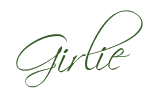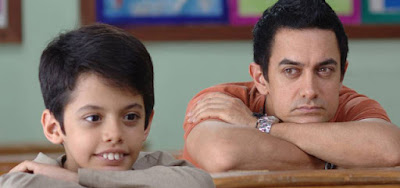Book: The Happiest Man on Earth
The author, centenarian Eddie Jaku has seen the very worst in mankind, the horrors of death camps and Nazi efforts to exterminate his race. But in spite of all his adversities, he still considers himself the happiest man on earth. According to him, life can be beautiful if you make it beautiful.
In this book, Eddie narrated his suppose to be normal childhood growing up which was halted by World War II, how the Nazi persecuted his people because of their Jewish beliefs, the torture and inhumane treatment in numerous concentration camps, how he lost his parents, the numerous attempts to escape, the death march, the people he met in the camp both ally and antagonist, how they were liberated, his life after the holocaust and the war and how he eventually found love and build his family.
In this book, Eddie narrated his suppose to be normal childhood growing up which was halted by World War II, how the Nazi persecuted his people because of their Jewish beliefs, the torture and inhumane treatment in numerous concentration camps, how he lost his parents, the numerous attempts to escape, the death march, the people he met in the camp both ally and antagonist, how they were liberated, his life after the holocaust and the war and how he eventually found love and build his family.
His story is sad, with darkness and great sorrow but it is a happy story in the end because according to him happiness is something you can choose, it is up to you.
1. There are many things more precious than money.
Eddie treasures all knowledge he gained when studying Mechanical Engineering under false identity but always regret the time spent far from family. As his father always reminded him, "Life is worth more than your bank account." There are many things in this world that no amount of money will buy you and some things priceless beyond measure. Family first.
3. Human body is the best machine ever made.
As they are being transported to the Czech Republic by the Nazis, women would run along the train and throw bread on them. This proves to him that there are still good people in the world. This knowledge was hope and hope is the fuel that powers the body. The human body is the greatest machine ever made but it cannot run without the human spirit. We can live a few weeks without food, few days without water but without hope, we will fail and break down.
4. We are all part of a larger society and our work is our contribution to a free and safe life for all.
Are you a teacher? You enrich the lives of young people every day. Are you a chef? Every meal you cook brings great pleasure into the world. Your efforts today will affect people you will never know. It is your choice whether that effect is positive or negative. You can choose every day to act in the way whether to uplift a stranger or drag them down.
Here are five excerpts and also my takeaways after listening to this audiobook via the StoryTel app:
 |
| Image courtesy of kobo.com |
1. There are many things more precious than money.
Eddie treasures all knowledge he gained when studying Mechanical Engineering under false identity but always regret the time spent far from family. As his father always reminded him, "Life is worth more than your bank account." There are many things in this world that no amount of money will buy you and some things priceless beyond measure. Family first.
2. One good friend can be your whole world.
The greatest thing you’ll ever experience is to be loved by another person. Without friendship, a human being is lost. A friend is someone who reminds you to feel alive. Having even just one good friend means that the world has a new meaning. The best bond for the soul is friendship, we could do the impossible.
As they are being transported to the Czech Republic by the Nazis, women would run along the train and throw bread on them. This proves to him that there are still good people in the world. This knowledge was hope and hope is the fuel that powers the body. The human body is the greatest machine ever made but it cannot run without the human spirit. We can live a few weeks without food, few days without water but without hope, we will fail and break down.
Are you a teacher? You enrich the lives of young people every day. Are you a chef? Every meal you cook brings great pleasure into the world. Your efforts today will affect people you will never know. It is your choice whether that effect is positive or negative. You can choose every day to act in the way whether to uplift a stranger or drag them down.
5. Shared sorry is half sorrow. Shared pleasure is doubled pleasure.
Eddie realized that as long as he still held fear and pain in my heart, he would not truly be free. It does no good to hold on to anger. Anger leads to fear which leads to hate which leads to death. Kindness is the greatest wealth of all. Small acts of kindness last longer than a lifetime. This lesson that kindness, generosity, and faith in your fellow men are more important than money, is the first lesson my father ever told me.
Eddie realized that as long as he still held fear and pain in my heart, he would not truly be free. It does no good to hold on to anger. Anger leads to fear which leads to hate which leads to death. Kindness is the greatest wealth of all. Small acts of kindness last longer than a lifetime. This lesson that kindness, generosity, and faith in your fellow men are more important than money, is the first lesson my father ever told me.
"May you have lots of love to share,
Lots of good health to spare,
And lots of good friends who care."-Eddie Jaku
What Eddie shared is not his pain but his hope. So never give up hope.
Here are few more inspirational quotes and reminders we can learn from this book:
Hug your mother.
Tomorrow will come if you survive today. One step at a time.
You can find kindness everywhere even from strangers.
Education is a life saver.
There is always miracle in the world, even when it seems dark.
If you lose your morals, you lose yourself.


Comments